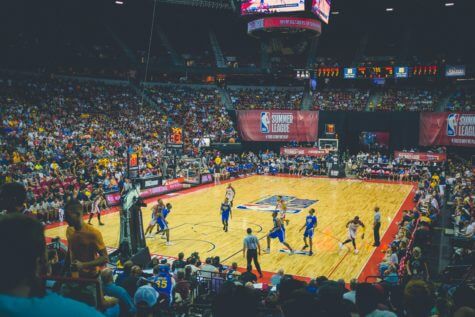CINCINNATI — An age-old sports adage purports that winning cures all. A new study seems to validate — and modernize — this notion, finding that winning percentage works in mysterious ways: it can even influence which teammates follow one another on social media.
Researchers at the University of Cincinnati (UC) recently examined the Twitter networks of 330 NBA players on all 30 teams. Players’ accounts, which were inspected during the 2014-2015 season, were part of an inquiry to see whether team performance affected the probability of superstar players following their less decorated teammates.

Winning games would indeed seem to create solidarity, the researchers found, particularly when it came to the league’s best players. The researchers discovered that players who’d made at least one All-Star team during their career were more likely to follow teammates on Twitter — when they played for winning teams. For example, LeBron James followed many more teammates than Carmelo Anthony during the period examined. (James’ Cleveland Cavaliers made it all the way to the NBA Finals that year, while Anthony’s New York Knicks set a franchise record for losses).
This finding largely mirrors behavior seen in more traditional professional environments, says Jeremy Koster, an anthropology professor at UC. Leaders, no matter their trade, tend to disassociate from subordinates when they work at a failing organization.
“On losing teams, distancing themselves from teammates may be an attempt by superstars to escape some of the responsibility for the poor performance,” Koster explains in a statement.
Meanwhile, everyone else — role players, bench warmers, and so on — didn’t seem to let their team’s record dictate whether they’d follow teammates.
Koster and co-author Brandy Aven, a professor at Carnegie Mellon, believe that these findings also reveal something about workplace overachievers who’ve never stepped foot on the hardwood. That is, no superstar can save a sinking ship.
“For individuals, their identity and status partly reflect the prestige of their groups, so until the performance improves, superstars may be reluctant to be associated with the team,” Aven says.
The researchers believe that future studies could follow elite players over the course of entire seasons, allowing their Twitter activity to be dissected after each and every win or loss.
The study was published April 30, 2018 in the journal PLOS One.

Comments
Comments are closed.